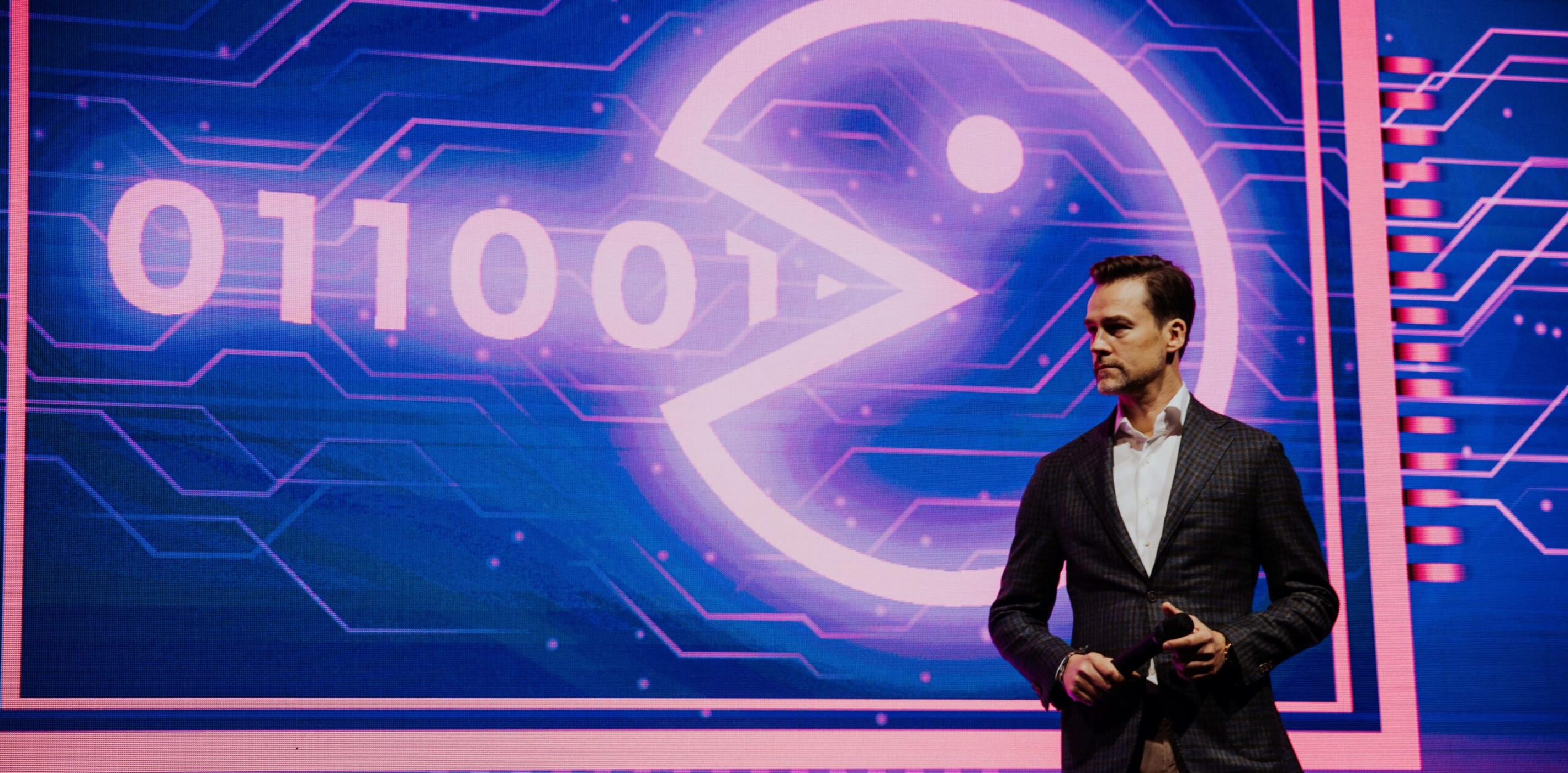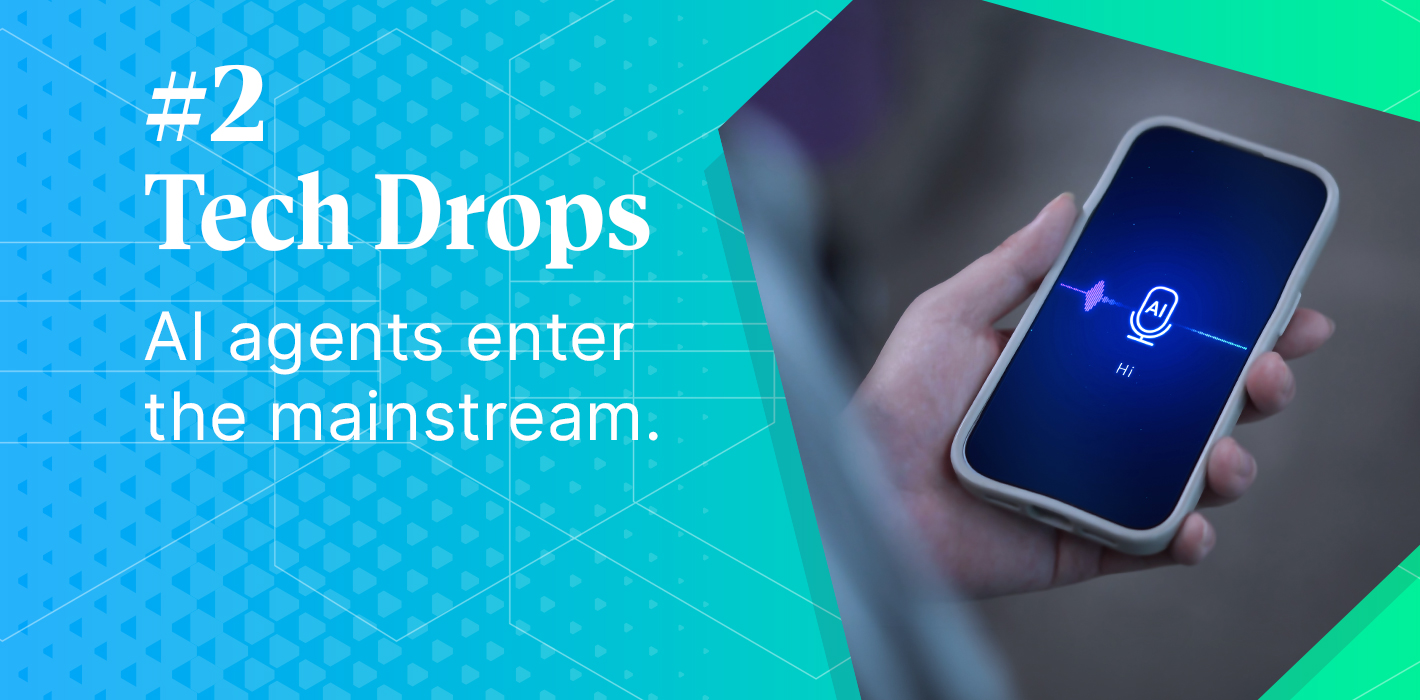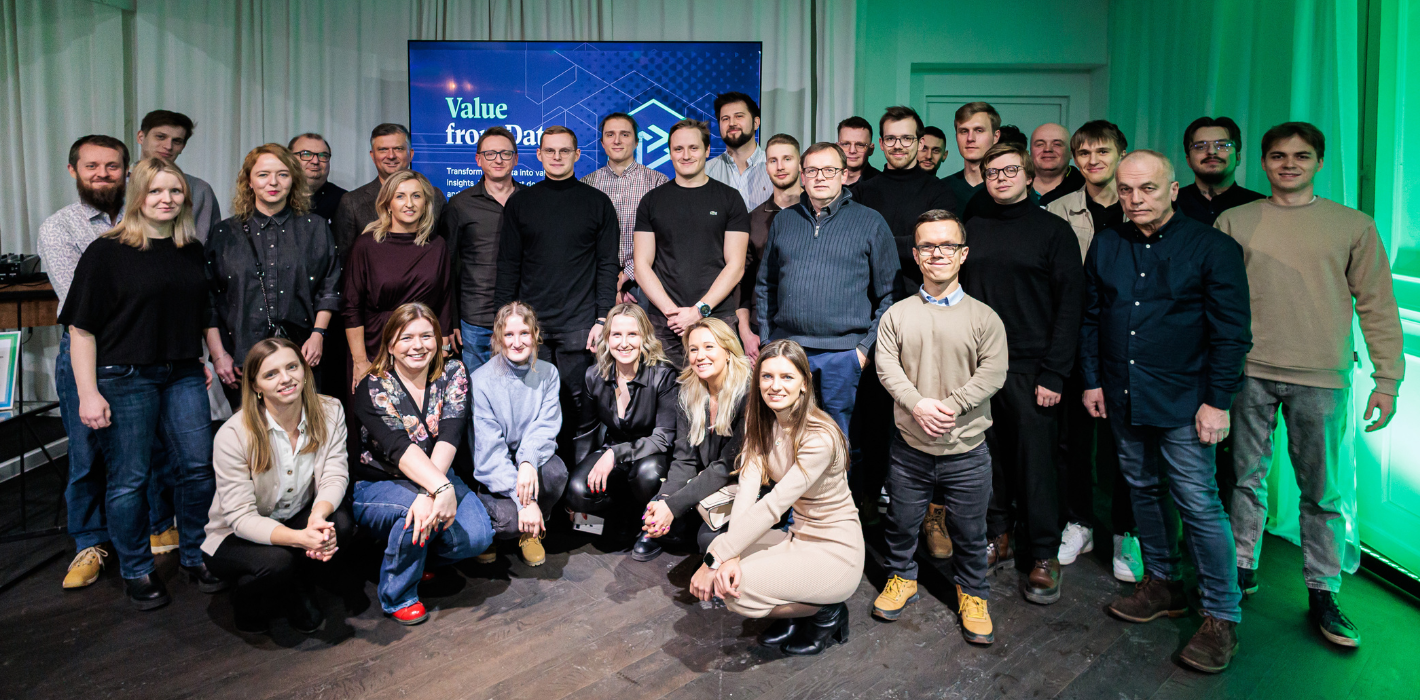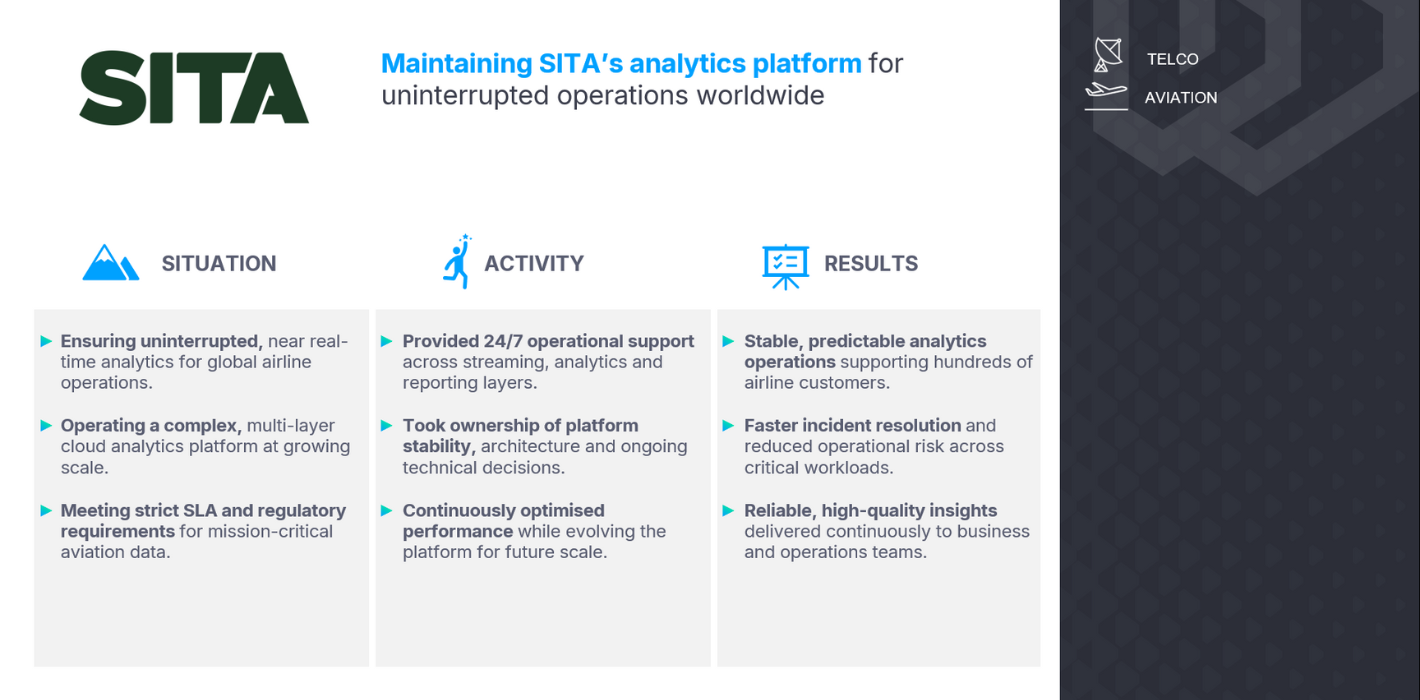Data Economy Congress as an event is the cross-sector meeting about the current data trends in business started with perfectly prepared trailer showing a kind of male robot which was supposed to embody the Artificial Intelligence. It was only surprising because in my mind AI was always female. Maybe it’s because of the movie „Ex Machine” or the first well-known robot known as „Sophia”. Perfect start of a well-designed conference. Nice structure of speeches and presentations intertwined with debates of branches’ specialists.
The place of AI in the society
The first day of the event focused mostly on AI and its impact on our culture and Polish society. Introducing presentation hold by professor Dragan was tiled in a controversial way: „Will AI eat us” and it was not only a try to explain the way algorithms used by AI work in a quite simple way but also it gave some concerns about human’s skills to understand how the results are finally created. Closing slides gave attendees food for thought as AI can be as helpful as dangerous for humanity and it looks like it doesn’t depend only on us how it’s used anymore. The next point was a debate about cooperation between companies in terms of data exchange so that conclusions for different businesses could be drawn. The slogan cooperate or die sounds reasonable but in fact it’s quite a difficult topic as most of the organizations treat their data as their competitive advantage and sharing even aggregated information cause fear. The second part of the first day did shed the light on practical examples of AI usage in many organizations. While we as consumers have a feeling that the advised product/offer is targeted to us, we still think that this is done by marketing specialists and in fact it’s not. The most expected branch is healthcare which substantially impacts everyone’s lives. Even though it’s understandable that Artificial Intelligence could help us fight against civilizational diseases, Polish society is still afraid of giving consent to the use of personal medical records. However it seems that awareness and acceptance is increasing if a person gets enough explanation. Similarly to the problem with transplantation that we were experiencing. Social campaigns impacted this positively, which could also be the case for AI in medicine?
Legal challenges
The final debate of the day was about the regulatory requirements that need to be introduced because of the European Data Governance Act and AI Act. The challenge that we face is not only connected with keeping the law up-to-date and predicting changes that will be needed while the AI is being developed but it also requires cooperation between regions like the USA or China. In case regulations are not introduced there, the unethical use of the AI and the advantage that could be taken from that could keep the AI development in Europe down and strengthen the sense of unfairness. On the other hand, we can’t stop working on AI development as from the medical point of view – we won’t be able to buy these technologies from others. The data for Europe and other parts of the world differ and this impacts results.
AI in modern business
The second day of a congress didn’t let me down –it’s main concerns were data quality and reporting – topics that don’t sound as „sexy” as AI at first glance but are thoroughly practical for all businesses. The first debate entitled Customer experience personalization made participants discuss the approach to data privacy in customer profiling explaining their high attention to that topic. It appears that data-driven marketing in many branches is happening everyday but it’s technically done differently. Additionally, it was a very interesting organizational point raised, namely: ownership of data models. Although, AI and Data departments are structurally not in business organization units, this is the business that should be the owner of the predictive models.
Discussion of cyber threats
The second block addressed the cyber-threats topic. There was a big discussion about fake news and the way they should be recognized in a real word. On the one hand, we know that the expanding velocity of truth is never as high as the expanding velocity of untruth messages. On the other hand, they should be caught so that we don’t make false decisions based on false premises. In the AI era, we will have more challenges with such challenges as the information, videos and artiles that could be generated by the AI. As such it is probably AI who (if I can treat it somehow human) should help recognizing them.
Platform Engineering, GIGO, data strategy and sustainability
In the next sessions of the Congress, there were the topics around best practices in platform engineering covered. Very important debates about data locations, data quality, data mesh concept and ESG reporting in practice made me think companies’ perception changes. Not only did many of the leaders speak about the hybrid location as a thing of the future but they were also mentioning the pros and cons of company owned Data Centers, Colocations, Private Cloud and Public Cloud. On the other hand, the slogan: „garbage in, garbage out” increased its visibility among not only technical managers but also directors dealing purely with business.
We’re used to topics that should generate some income for companies but it definitely looks like sustainability also has its place. Probably mostly because of the changes in requirements concerning reporting of ESG. The discussion about standards and their common understanding makes me feel that an honest approach to the topic in all of the presented branches is crucial. Otherwise, the concern for sustainable development is artificial as only different categorization could cause variances in reporting and in that way possible commercial advantage. On the other hand, the statement made by one of the participants: „the real sustainability is now a competitive advantage over others” made me understand that for most of the companies, this interest is real and I hope this trend will be kept.
Summary
All in all, the Data Economy Congress in Warsaw was not only inspiring but also a well-prepared event. As BitHikers, we are surely going to attend it and join the discussions held next year, because looking at the technological solutions from business perspective is one of our core values and our technical knowledge and expertise can help in solving real challenges connected to AI, and its place in large scale businesses and society in general.
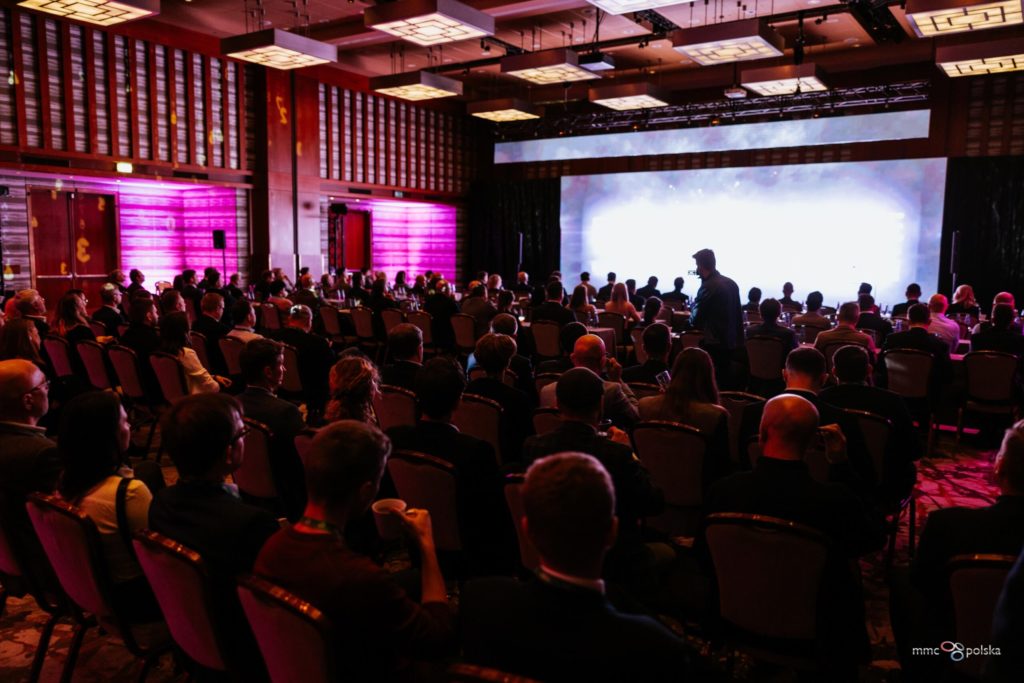


 (+48) 508 425 378
(+48) 508 425 378 office@bitpeak.pl
office@bitpeak.pl

